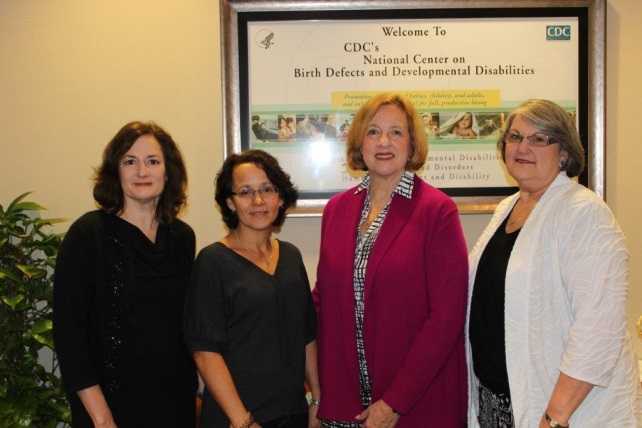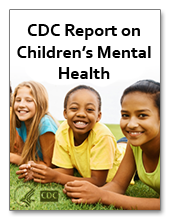Partner Stories
Spotlight On: Original Legacy Partners

Legacy partners (L to R): Dane Fitzmorris, Awilda Gonzalez, Lynne Katz, Rosalie Miller
Legacy for Children™ (Legacy) is CDC’s evidence-based public health approach to improve child outcomes by fostering positive parenting among low-income mothers of infants and young children. Learn more about the original Legacy partners in this spotlight.
Original Key Partners
Two key partners, the University of California-Los Angeles (UCLA) and the University of Miami (UM), played vital roles in the development and evaluation of two Legacy curricula designed to influence mothers to make thoughtful choices that lead to positive parenting and child development. Read more about the Legacy model here. Five of the original model developers and group leaders — Leila Beckwith, Ph.D., and Dane Fitzmorris M.A. from UCLA and Lynne Katz, Ed.D., Rosalie Miller, M.S.Ed., and Awilda Gonzalez from UM — continue to partner with CDC in implementing the Legacy program and sharing program resources with community-based agencies for use with families in their area.
Developing Legacy
UCLA staff recently shared their memories of Legacy’s beginnings:
“When the goals for Legacy for Children™ were developed in the early 1990s, there was a national dialogue about how best to support low income families with young children. Legacy for Children™ presented a unique question: If mothers are given the opportunity to reflect upon and improve their parenting knowledge and skills, and are helped to believe that they can positively influence their children’s development, regardless of life’s circumstances and stresses, would this improve their children’s outcomes?”
With this question in mind, the UCLA and UM teams worked closely with CDC to develop curricula that reflected the Legacy model but was responsive and appropriate for their community’s needs. However, as UM noted, “implementing the models in real communities was where the ‘rubber hit the road’ and represented a Herculean task for our Legacy project teams.”
Making Decisions
Among the early decisions made about the Legacy model was the selection of an approach to working with the mothers that promotes maternal responsibility through peer support rather than classroom-style teaching. Both sites and CDC knew that partnering with the mothers, rather than trying to “teach” them, would be the key to eliciting mothers’ best efforts to support their children’s development.
As the UCLA staff describe this approach,
“Each mother makes a personal choice about how she will reflect upon the information being discussed and how she will incorporate it into her parenting. Modeling by the group leader is also an important factor. What is valued and supported in the mothers is what [Legacy] wants the mothers to value and support in their children. This includes promotion of unconditional positive regard, reflecting upon new information and working within a community.”
Seeing the Impact
The success of Legacy has been documented empirically in a pair of randomized controlled trials showing positive results on children’s behavioral outcomes. But only the original partners can share the stories of how Legacy changed lives, such as this description from UM staff,
“We saw it over time in our mothers as their knowledge about child development continued to grow. We saw their sense of openness around subject matter discussions related to their children’s education, alternative behavioral support options and their understanding of their advocacy role in their children’s lives. To see self-efficacy bloom over time was rewarding for everyone on the Miami project team… At the end of the day, Legacy for ChildrenTM is about building relationships. The relationships the UM and UCLA sites built with the CDC project team, the cross-site relationship and the relationships developed with our participants.”
Connecting Old and New Partners
Based on the published results, Legacy is now being pilot tested in a variety of community settings, such as the Administration for Children and Families’ Early Head Start, Health Resources and Services Administration’s Healthy Start, Substance Abuse and Mental Health Administration’s Project LAUNCH, the American Academy of Pediatrics’ pediatric primary care, and Tulsa Educare. Through involvement in the development of the Legacy curricula, implementation and providing technical assistance to new implementers, theLegacy UM and UCLA Teams have made a substantial impact in the lives of families and children. In return, these families have made a substantial impact on our Legacy partners.
- Page last reviewed: July 10, 2017
- Page last updated: July 10, 2017
- Content source:
- Division of Human Development and Disabilities, National Center on Birth Defects and Developmental Disabilities, Centers for Disease Control and Prevention



 ShareCompartir
ShareCompartir